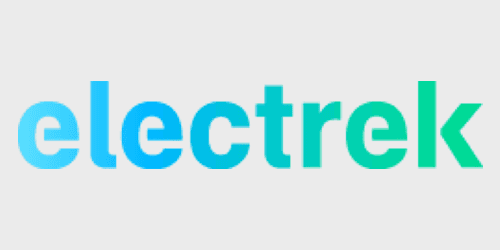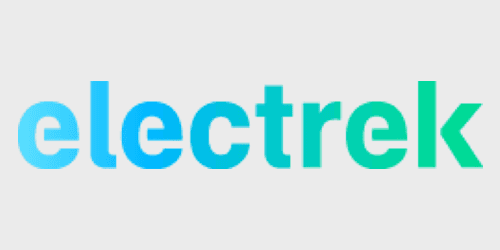

California’s ZEV mandate has been quite successful in making California an important market for electric vehicles. The idea is that automakers get ZEV credits when they sell zero-emission vehicles in the state. If they sell enough ZEVs as part of their entire sales in the market, they comply with the mandate and they will not get fined, but if they don’t sell enough, they will be fined or they can purchase ZEV credits (at a discount on the fine) from other automakers with a surplus.
The California Air Resources Board (CARB) is working on updating the program and the automotive industry is on the edge of its seat to learn the impact it will have on the Californian auto market, which is the most important in the US.
Mary Nichols, the chair of the state’s Air Resources Board, hinted this week that they were leaning toward making the mandate stricter despite some strong opposition by automakers.
On-going lobbying efforts throughout the year clearly established the position of the industry on updating the mandate. If it is to be updated, they want it to be weaker. Actually, almost every single automaker lobbied for CARB to weaken the mandate except Tesla.
The electric automaker was the only car company to argue for a strong mandate. Tesla CEO Elon Musk even called the current structure “incredibly weak” and the standards “pathetically low.”
Nichols had encouraging words for EV enthusiasts this week. While speaking with WardsAuto at “The Road Ahead” symposium, she said that the ZEV mandate is here to stay and added:
“If anything, I think it will move further and faster, not move in the other direction,”
California’s Air Resources Board is starting to realize that it might have made a mistake by projecting a 15.4 percent market share for zero-emission vehicles (ZEVs) by 2025. The state, which pioneered incentivizing automakers to sell electric vehicles, is being outpaced by countries, like Norway and the Netherlands, exploring the idea of ZEVs having a 100 percent market share within the same timeframe.
Furthermore, because of Tesla, which only sells ZEVs, and the popularity of a few plug-in hybrid models, like the Volt, ZEV credits have flooded the market and now automakers would only need to achieve a 6 percent ZEV market share in the state and compensate with credits bought from other automakers in order to comply with CARB’s mandate without being fined.
That became clear this week with the release of the latest report on ZEV credits which shows that some automakers stockpiling them for when the percentage of ZEV sales requirement will increase.
Here’s the credit balance of automakers in California as of August 31, 2016 based on the report published this week:
|
California Zero Emission Vehicle Credit Balances |
||||||
|
Manufacturer |
ZEV |
1.5x/llx |
NEV+ |
TZEV |
AT PZEV |
PZEV |
| BMW |
7,092.49 |
13,668.55 |
0.00 |
0.00 |
0.00 |
0.00 |
| BYD Motors Inc. |
0.00 |
0.00 |
0.00 |
0.00 |
0.00 |
0.00 |
| Fiat Chrysler |
68,308.20 |
0.00 |
0.00 |
0.00 |
16,257.32 |
2,416.66 |
| Ford |
62,566.16 |
0.00 |
16,802.68 |
39728.36 |
8,883.97 |
12,488.82 |
| Fuji Heavy Industries/Subaru |
31,000.00 |
0.00 |
1,177.11 |
0.00 |
795.50 |
14,300.20 |
| GM |
23,740.07 |
0.00 |
10,691.78 |
68319.52 |
8,062.90 |
1,644.36 |
| Honda |
32,294.07 |
0.00 |
13,987.47 |
0.00 |
11,200.38 |
54,235.94 |
| Hyundai |
1,481.00 |
0.00 |
0.00 |
0.00 |
6,868.71 |
10,868.57 |
| Jaguar Land Rover |
1,358.49 |
0.00 |
0.00 |
0.00 |
0.00 |
511.72 |
| KIA |
2,295.09 |
0.00 |
0.00 |
0.00 |
5,627.70 |
10,514.40 |
| Mazda |
0.00 |
0.00 |
0.00 |
0.00 |
5,063.30 |
5,621.80 |
| Mercedes Benz |
24,447.37 |
0.00 |
1,232.63 |
274.35 |
99.38 |
10,332.00 |
| Miles |
0.00 |
0.00 |
5.14 |
0.00 |
0.00 |
0.00 |
| Mitsubishi |
67.50 |
0.00 |
0.00 |
0.00 |
0.00 |
1,468.43 |
| Nissan |
35,165.00 |
0.00 |
0.00 |
0.00 |
0.00 |
1,931.60 |
| Polaris |
0.00 |
0.00 |
0.00 |
0.00 |
0.00 |
0.00 |
| Tesla |
3,530.00 |
0.00 |
0.00 |
0.00 |
0.00 |
0.00 |
| Toyota |
42,709.02 |
0.00 |
0.00 |
10462.31 |
205,211.21 |
0.00 |
| Vantage |
0.00 |
0.00 |
0.00 |
0.00 |
0.00 |
0.00 |
| Volkswagen |
8,999.86 |
0.00 |
0.00 |
0.00 |
756.54 |
5,122.69 |
| Volvo |
0.00 |
0.00 |
0.00 |
0.00 |
0.00 |
3,740.86 |
| Zenith |
62.50 |
0.00 |
0.00 |
0.00 |
0.00 |
0.00 |
| Zipcar |
0.00 |
0.00 |
0.00 |
0.00 |
612.51 |
488.09 |
| TOTAL |
345,116.82 |
13,668.55 |
43,896.81 |
118,784.54 |
269,439.42 |
135,686.14 |
Earlier this year, CARB hinted at potentially limiting the number of credits per automaker in order to solve the issue, but that was also seen has punishing those who do most for electric vehicles, like Tesla.
Tesla responded that it welcomes a stricter mandate, but that it wouldn’t be fair to cap the credits:
“Diarmuid O’Connell, Tesla’s vice president for business development, said he supports higher emission targets. But he rejects the idea of capping credit trades, which he calls “an extremely stupid idea: You’d be punishing people who are doing the most to put EVs on the road.”
Between October 1, 2015 and August 31, 2016, Tesla was able to transfer 80,227 credits to other automakers since it only sells electric vehicles in the state. The price of the credits are confidential between buyers and sellers, but they are believed to be worth between $3,000 and $4,000, which means that Tesla made between $240 million and $320 million from the program between October 1, 2015 and August 31, 2016.
The biggest buyers were Ford and Fiat Chrysler. They are now sitting on a lot of credits, which will enable them to sell a lot of gas-guzzling trucks and SUVs for a long time.
FTC: We use income earning auto affiliate links. More.



Comments